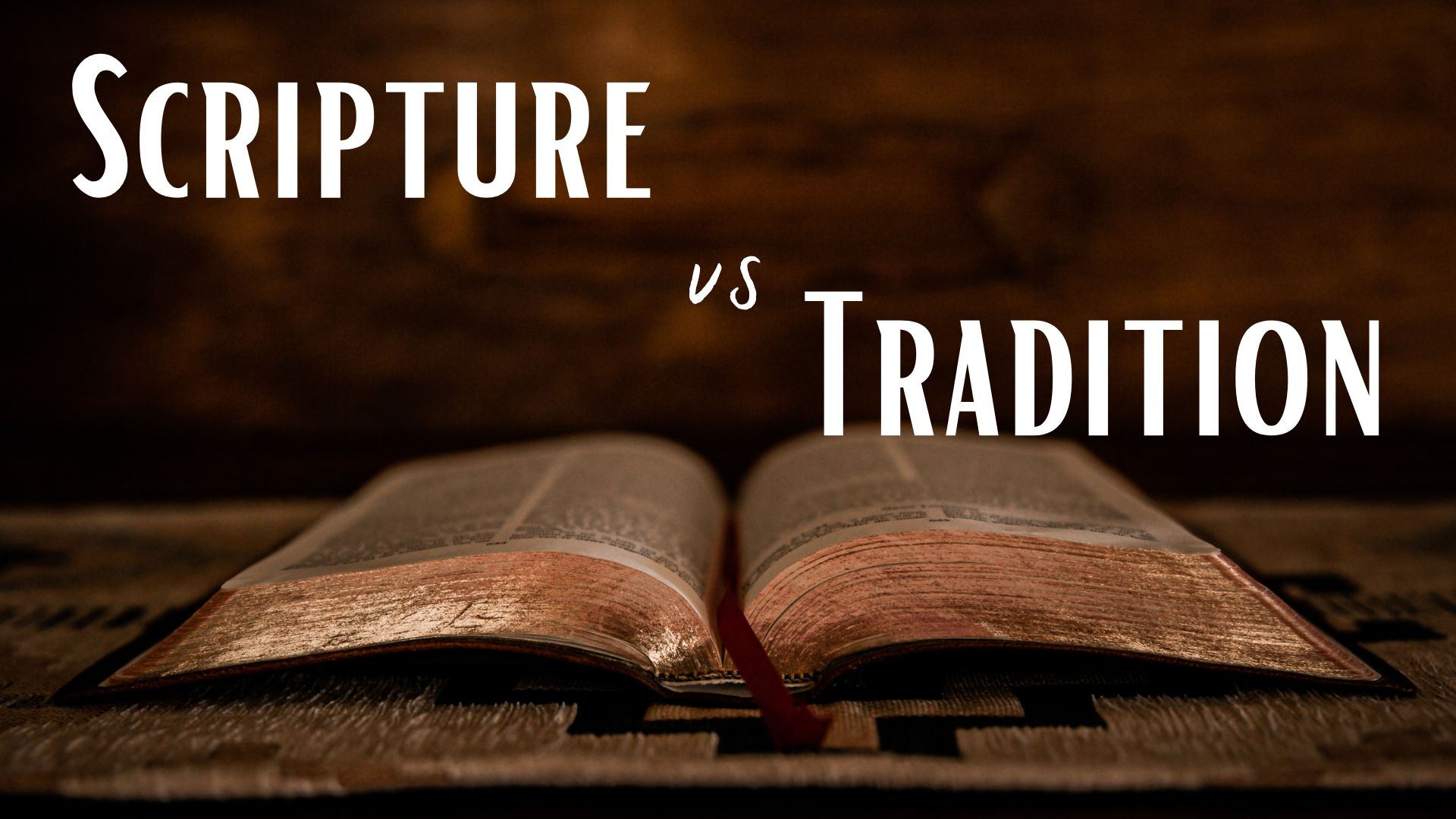Scripture vs. Tradition
At what point do we determine that any subject is so far outside of our own cultural spectrum that we will refuse to re-examine what Scripture has to say about the matter? Are there some things so foreign to our theological bias that we cannot even consider the option that our position may not be the only biblically defensible view?
If our position is indeed the only biblically accurate view, WHY are we unwilling to look at the best arguments advanced by the most eloquent and convincing proponents of alternative interpretations? Why do we limit our investigations to reading those who share our own views and selectively quote those with opposing interpretations? If we do not fully and accurately understand the other positions, how can we be so dogmatic in our declarations that they are wrong? It is tragically evident that many writers do not even understand the opposing views in that they are unable to accurately articulate the positions in terms that their opponents would agree to be a fair and accurate representation of their view. By logical conclusion, how can we understand the opposing views if we have not studied their best and most able advocates?
Are we unwilling to consider alternative interpretations because we are unwilling to pay the inevitable cost of taking a position for which many of our brothers in ministry would brand us unorthodox or perhaps even heretical? Do we have such little regard for the integrity of Scripture that we would sell out the intellectual integrity of our theological positions for the paltry sum of the approbation of our peers? Do we lack the confidence in our own presuppositions so as to be unwilling to again and again expose those presuppositions to the searching arguments of the most able and ardent critics?
If we cannot thoroughly defend our position then one of at least two things is true: (1) We do not understand our own position well enough to defend it, or (2) Our own position may be wrong. In case of the former, our position may be correct even though we cannot defend it. And, if we cannot defend how can we argue effectively for its veracity?
It is understandable when those of lesser thought processes are unwilling to consider possibilities with which they are unable to contend. It is never understandable when those who are called to faithfully declare the Word of God, day in and day out, refuse to continually subject their own theological presuppositions to the searchlight of ALL of Scripture. Any position that is theologically sound must be able to adequately deal with ALL of the Scripture related to the subject. Anything less is shoddy scholarship at best and theological dishonesty at the worst. In between there lies a broad spectrum of positions to include fear and laziness that, in any case, still fail the test of sound and adequate biblical scholarship.
As men of God who declare the Word of God, we must lay aside our theological presuppositions every time we come to the Text. To do anything less is to become little more than persistent puppets perpetually parroting the politically pleasing popular party position. How tragic it is that in many circles the full approval, commendation, and cheering of peers in ministry seems to be determined exclusively by how well we can beat the same old worn out drums of our denominational or affiliation band-leaders.
Perhaps we should host a seminar on “How to Ride Dead Horses With Greater Effectiveness and Enthusiasm.” May God deliver us from such nonsense! Jesus said, “Thus have ye made the commandment of God of none effect by your tradition” (Matt 15:6, cf. 15:3; Mark 7:9,13; 1Pet 1:18).
Raymon J. Prince
February 26, 2014
